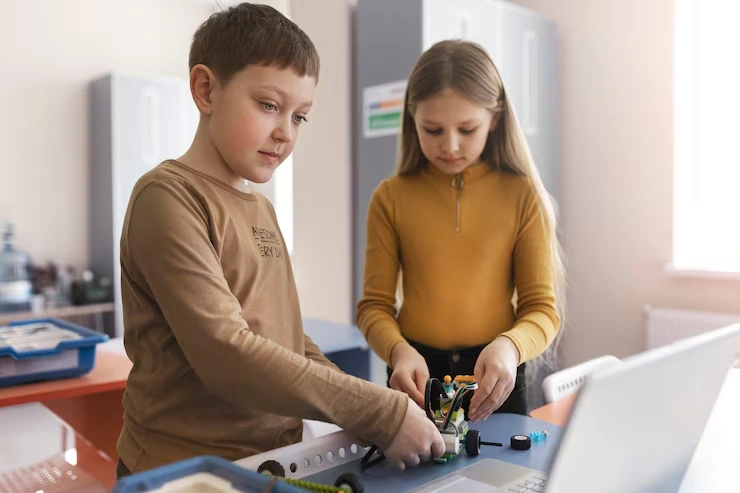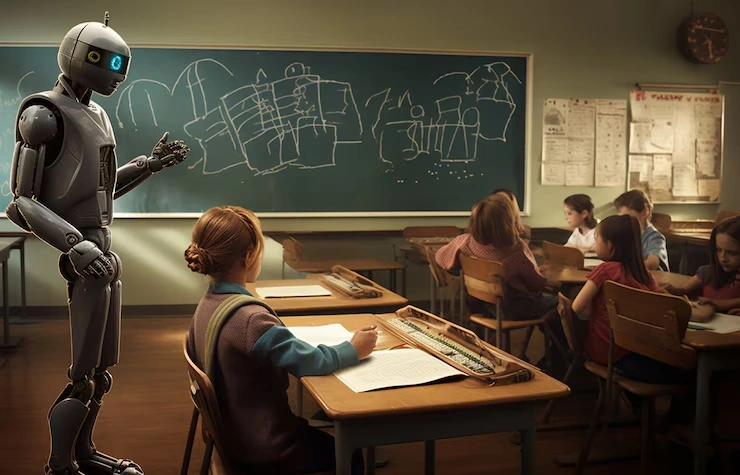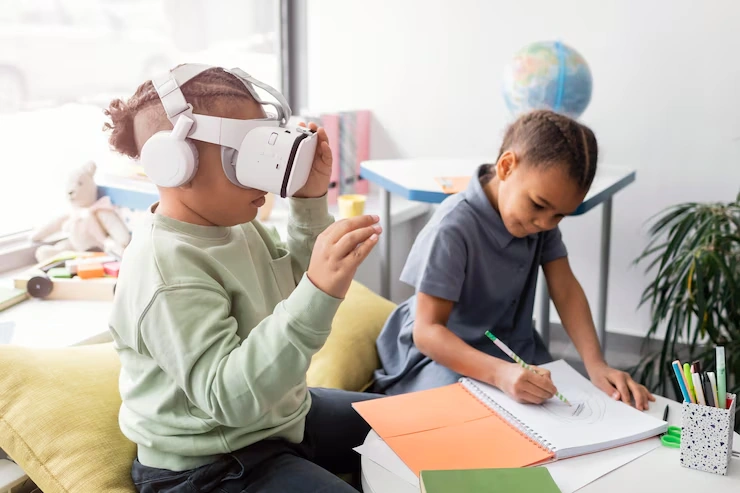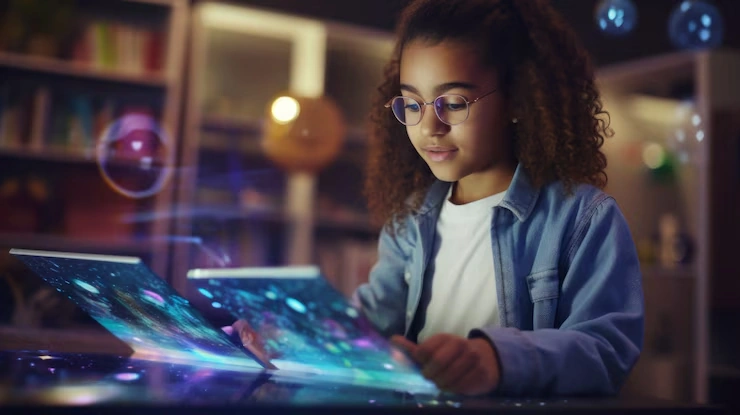The Science Behind AI Homework Helpers

The role of artificial intelligence (AI) in education is becoming more significant as schools, educators, and parents consider how it might impact students’ learning experiences. As AI-powered tools continue to evolve, the question arises: will AI eventually replace traditional homework? This question is not only about technology’s ability to assist but also its impact on the way students learn and develop critical thinking skills. At Homeworkify, the integration of AI tools is already helping students with personalized support across various subjects, including science, math, and physics. In this article, we will explore how AI is reshaping education, the potential advantages and challenges it brings, and what the future of homework in an AI-driven world might look like.
The Rise of AI in Education
Artificial intelligence has already started making its way into various sectors, and education is no exception. AI is reshaping the landscape of learning by providing new opportunities for students, educators, and schools. AI-driven tools are being used to automate administrative tasks, assist in lesson planning, and offer personalized learning experiences. These tools allow students to engage with their lessons in a more interactive way, providing a learning process that adapts to their individual needs.
AI-Powered Tools: A Game Changer for Educators
Educational institutions and schools are increasingly adopting AI tools to support both students and teachers. AI-powered tools such as virtual assistants, homework help platforms, and quizzes are designed to assist with tasks traditionally handled by educators. These tools can analyze student data in real-time, providing instant feedback on homework assignments, helping learners improve quickly.
For instance, platforms like ChatGPT can assist students with research, essays, and assignments by providing guidance and suggestions. While these tools can’t replace the critical thinking and human connection that teachers provide, they can complement the learning experience by giving students instant access to support and resources.
Personalized Learning Through AI
AI’s role in education is expanding beyond administrative tasks. One of the most promising aspects of AI in the classroom is its ability to personalize the learning experience for each student. AI systems can analyze individual progress and provide tailored resources, assignments, and feedback that meet each learner’s needs. This level of personalized learning is something traditional education systems struggle to achieve on a large scale.
Personalized learning allows educators to focus on students who need additional support while ensuring that those who are excelling are appropriately challenged. The result is a more equitable learning environment where every student can reach their potential, regardless of their starting point.
The Challenges of AI Replacing Homework

While AI presents exciting opportunities for the future of education, it also raises several challenges, particularly when it comes to replacing traditional homework assignments.
Loss of Human Connection in Learning
Homework is not just about completing tasks; it is also an opportunity for students to reflect on their learning and for teachers to assess their understanding. Teachers provide feedback that helps students improve their skills, not only in the subject matter but also in critical thinking, time management, and discipline. The use of AI-powered tools for homework could diminish the human element that is integral to the learning process. Teachers are more than just graders—they are mentors, guides, and role models who provide invaluable support and encouragement.
AI-driven tools can provide instant feedback, but they lack the empathy and understanding that human teachers offer. This is a key consideration for those who believe that AI should complement, not replace, the role of educators in the classroom.
The Digital Divide: Not All Students Have Equal Access
One of the most significant barriers to the widespread use of AI in education is the digital divide. Not all students have equal access to the necessary technology or internet connectivity to benefit from AI-driven tools. According to a report by UNESCO, over 2 billion students in the world still lack access to the internet, limiting their ability to use digital tools for learning.
In regions like Saudi Arabia and India, where internet access may not be as widespread, the reliance on AI-powered homework assistance could exacerbate existing inequalities. Schools and educational institutions must ensure that students have the necessary resources to take full advantage of AI tools to avoid further widening the gap between privileged and underprivileged learners.
AI's Role in Shaping the Future of Homework

While AI is unlikely to completely replace homework in the foreseeable future, it will undoubtedly play a crucial role in how assignments are completed. Homework tasks may become more dynamic, interactive, and tailored to individual needs, thanks to AI-powered platforms and virtual assistants. Instead of spending hours searching for resources, students could rely on AI systems to assist them with research, essay writing, and even problem-solving in real-time.
Furthermore, AI has the potential to offer instant feedback, helping students identify mistakes and correct them immediately, which is often a challenge with traditional homework assignments. This system could significantly improve student progress, as learners can work at their own pace and receive help when needed.
AI and Critical Thinking Skills
Critics argue that relying on AI for homework could hinder the development of critical thinking skills. Homework is intended to challenge students, forcing them to think independently and work through problems on their own. While AI can provide resources and guidance, it cannot replace the cognitive skills developed through hard work and problem-solving.
As the education system evolves, it will be essential to strike a balance between using AI as a tool for support and ensuring that students continue to develop the critical thinking skills that are essential for success in the workforce. Teachers can use AI to complement their teaching by giving students the resources they need while still encouraging independent thought and creativity.
How AI is Enhancing the Learning Experience

AI in education is not limited to homework replacement. It is also transforming the overall learning experience by making it more engaging, interactive, and personalized. For example, AI-driven platforms like MIT’s immersive learning environments use simulations, augmented reality (AR), and machine learning to provide students with hands-on experiences that traditional classrooms cannot replicate.
By integrating AI-powered tools with traditional teaching methods, educators can create immersive environments that allow students to experiment, make mistakes, and learn from their experiences in a safe space. These environments also help students with learning disabilities by providing customized learning paths that cater to their specific needs.
The Future Role of Teachers
Teachers will continue to play a critical role in education, but their role may shift as AI tools become more integrated into the classroom. AI will help educators by automating administrative tasks, such as grading and lesson planning, freeing up more time for teachers to focus on teaching and interacting with students. This will allow teachers to provide more personalized attention and ensure that every student’s needs are met.
Rather than replacing human educators, AI can serve as a support tool that allows teachers to focus on more meaningful interactions with their students. In the future, educators may rely on AI-powered platforms to assist with lesson planning, assignments, and assessments, but the human touch will remain crucial in fostering critical thinking and emotional intelligence in students.
How AI Supports Parental Involvement

AI tools also provide opportunities for greater parental involvement in their children’s education. Parents can receive real-time updates on their child’s progress, assignments, and homework. This level of transparency allows parents to stay informed about their child’s learning journey, enabling them to provide support when necessary.
By using AI-driven platforms, schools can bridge the gap between the classroom and home, ensuring that parents are actively engaged in their children’s education. Tools that provide instant feedback on homework assignments can also help parents track their child’s progress and identify areas where additional support may be needed.
Frequently Asked Questions
Will AI completely replace homework?
No, AI is not likely to completely replace homework. While AI tools can assist with homework assignments by providing instant feedback and personalized support, the role of human teachers and the development of critical thinking skills cannot be replaced by AI.
How can AI improve the learning experience?
AI can enhance the learning experience by providing personalized learning paths, real-time feedback, and interactive environments that cater to the individual needs of students.
What are the ethical considerations of using AI in education?
Ethical considerations include ensuring equal access to AI tools, protecting student data privacy, and making sure that AI supports, rather than replaces, human teachers in the learning process.
How does AI affect the digital divide in education?
AI can exacerbate the digital divide by increasing the gap between students who have access to technology and those who do not. Educational institutions must work to ensure all students have equal access to AI-powered tools.
Can AI help with personalized learning?
Yes, AI can significantly enhance personalized learning by providing individualized assignments, resources, and feedback based on a student’s progress and needs.
Conclusion
Artificial intelligence is undeniably shaping the future of education. While it may not fully replace homework, AI is transforming the way students engage with assignments, receive feedback, and interact with their teachers. As the education system evolves, AI-driven tools will continue to play a crucial role in personalizing learning, enhancing classroom experiences, and providing valuable support to both students and educators. However, careful consideration must be given to the ethical implications and ensuring that all students have equal access to these resources to avoid widening the educational gap. The future of education lies in finding the right balance between human interaction and technological support.


